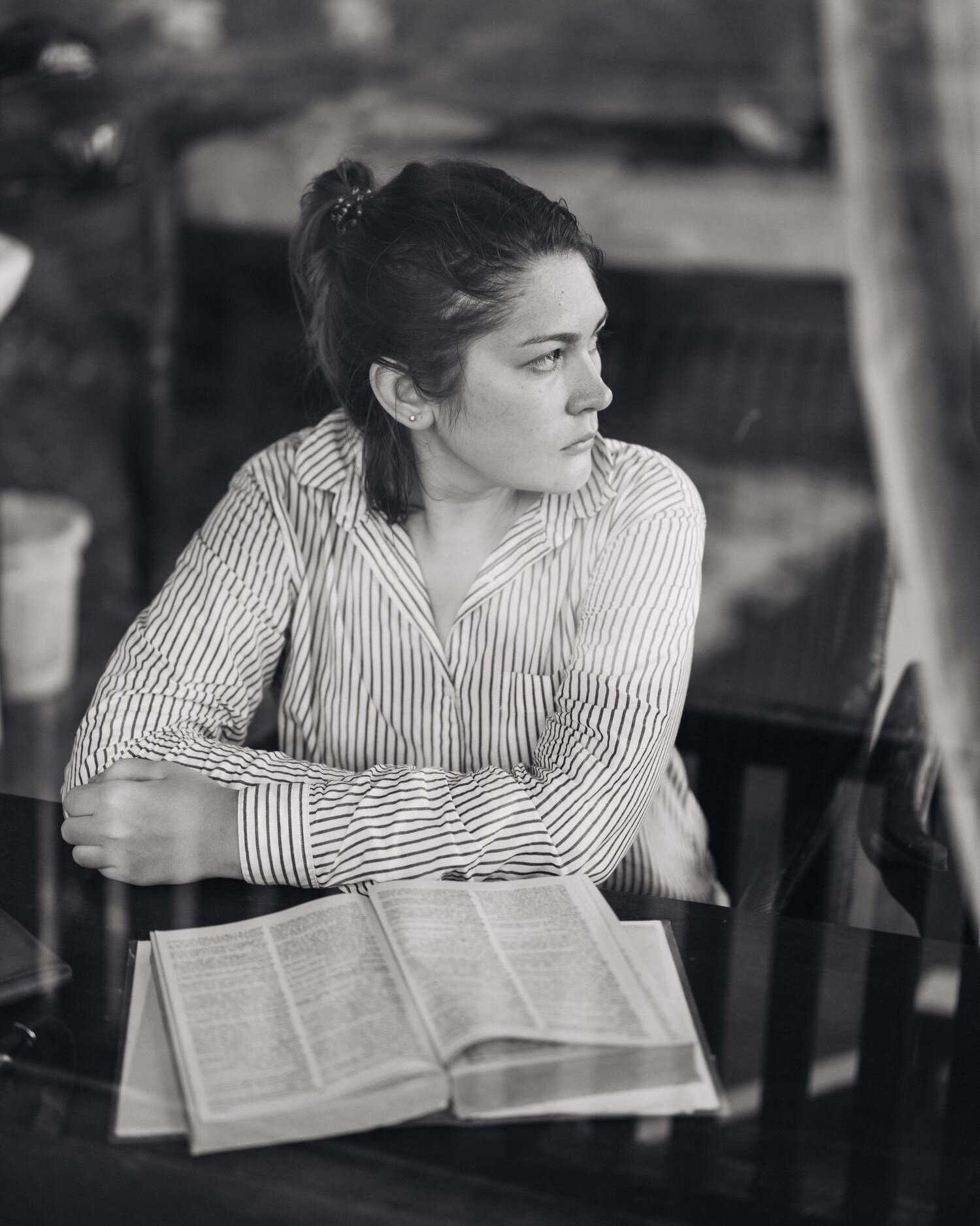I remember sitting at my school-issued desk with a coffee cup in my hands. Breathe in. Breathe out.
I closed my eyes, trying to get out of my swirl of thoughts and root myself in the present moment. My senses became an anchoring point.
I noticed the smooth curve of my mug between my hands, the way the handle perfectly fit my laced fingers. My thumb rubbed over the decorative lines engraved on its surface. My coffee was fresh, and I could feel the pottery absorbing its heat, could feel my fingers warming against the day's chill.
Breathe in. Breathe out. This is what it feels like to be alive.
I noticed the firm pressure from the wooden chair on which I sat, the firm pressure of the thinly carpeted floor under my feet. As gravity pulled me down, they held me up.
Breathe in. Breathe out. There is goodness here in this moment. This is what it feels like to be alive.
At the time, I was surviving and then recovering from my first brush with depression's terrors. Some days in that season, my mind could barely disengage from the constant onslaught of negative thoughts. My pain echoed in my head—insistent and devious. At other points, I was too numb to feel or to think. It was as if I floated through motions, disembodied, a shell of my former self.
It was within this context that I learned the value of basic grounding exercises, which narrowed my attention to the very basic, tangible elements of my existence. When my mind was in chaos, it narrowed my focus, getting me out of my head for a moment, calming my thoughts through focusing on the concrete. When my mind was numb and I couldn't "feel" emotionally, it focused my attention on what I could feel through my bodily senses, reorienting me and reminding me that I was, in fact, still alive.
In this current season of my life, I engage in this practice for typically less desperate reasons, but I still find it to be helpful. When I'm overwhelmed my things I cannot control, I go out to the garden, and focus on the sensation of the soil crumbling between my fingers. When I feel too much, I take the kids for a walk, noticing the way it feels to move my legs, the way my feet hit the pavement.
Does this fix my problems? No. But it gives me a little oasis moment in the midst of the chaos or challenge of life. It slows down my mind and my heartbeat enough to truly notice the life I am living. I am reminded of goodness and of simple joy. I am anchored in the reality that God is present with me, that I breathe the air He's given me. In the quiet moment of noticing more—and less—I can often give thanks or find words to pray, perhaps in ways I wouldn't have before. As I close my eyes and breathe—or perhaps really open them for the first time—I can see, and even if for a moment, that is enough.
Breathe in. Breathe out. There is goodness here. God is here. This is what it is to be alive.
This post originally appeared in my Every Day Grace newsletter. If you’d like to receive reflections like this in your inbox, along with a related formation exercise, join me by signing up here.





